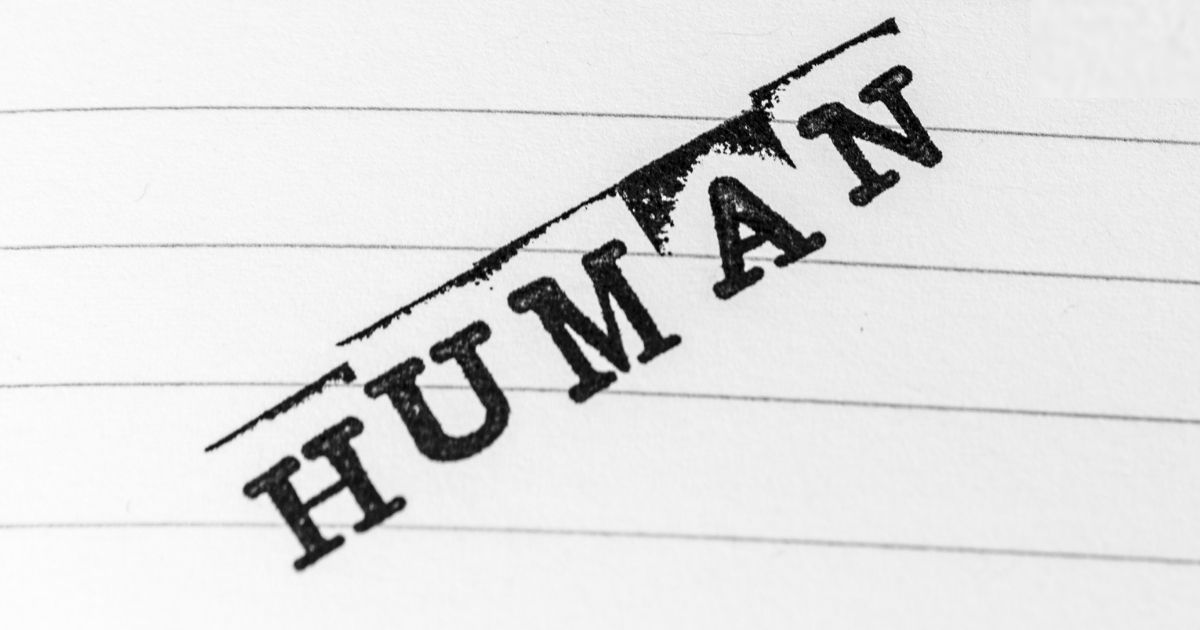Most SEO professionals have heard of the robots file – the file that’s responsible for telling search engine crawlers which pages, directories and files can or cannot be crawled – but what about the humans.txt file?

The humans.txt file is a bit of a superfluous addition to the web – albeit it a nice finishing touch.
If you’re interested in the humans.txt file and its impact on SEO, this article is for you!
Contents
What is the humans.txt file?
The humans.txt file is a text file – plain and simple. It’s a text file created in Windows Notepad or any Text Editor programme that is intended to be saved in the root folder of your website.
The file can then be accessed in the web browser by typing /humans.txt at the end of the URL – so mine is located at https://sarahtamsin.com/humans.txt
Does the humans.txt have to follow a specific format?
No. As the humans.txt file does not contain any directives for bots and crawlers, there’s no need to use a specific syntax like you need to in the robots.txt file.
However, the original humans.txt file creators provide a recommended format for this file. Yet, following this format is completely optional.
My website is managed by a one-woman band (me), so the suggested format didn’t seem appropriate for my use case, so I took an unconventional approach when creating mine (check it out!)
The robots.txt file, on the other hand, must be written in a specific format in order for it to be effective.
The humans file is a bit more of a novelty feature, so the format in which it’s written does not matter.
What’s the point of this file?
The idea is to emphasize the point that it is humans – not robots – who are the primary consumers of digital content, and our website’s files should reflect that.
There are often many different individuals involved in building a website:
- Graphic designers
- UI/UX designers
- Content creators
- Copywriters
- Web developers
- Engineers
- SEO specialists
- Bloggers
The humans.txt file is an opportunity to give credit to each of these individuals, a bit like the credits at the end of a film.
Does the humans.txt file affect SEO?
Not really, no. The presences of this file is highly unlikely to boost your search engine rankings in any way, nor is it likely to get your website more traffic.
It’s nothing more than a nice thing to have.
Having said that, Google has their own humans.txt file, so they obviously like the concept. Make of that what you will 😉
There’s also a suggestion to use <link rel="author" href="humans.txt" /> in the <head> of your website, which is handy if your website does not have individual author pages. However, most modern website Content Management Systems will already have the built-in functionality to create profile pages or about pages for website authors. Not everyone involved in a website has published content, so this file is another opportunity to properly credit everyone involved.
Do People Actually Look at it?
Yes, some people do actively look for the humans.txt file, but you may not know about it.
Most websites have Google Analytics or other tracking codes installed via their CMS, as this is a simple txt file, it doesn’t load from the CMS, therefore there’s no analytics on this file.
However, if you look at the raw stats from your web server, you should be able to see exactly whether anyone accesses this file or not. You can usually see your server’s access logs in cPanel or via your web host’s admin area.



